"non-boutique coffee" must be very bad? Are all beans less than 80 points rotten?
Professional coffee knowledge exchange more coffee bean information please follow the coffee workshop (Wechat official account cafe_style)
Can't buy "good" coffee in the supermarket?
Why do so many people complain about Starbucks coffee beans?
The coffee from your own bakery must be "not bad?"
If we want to know these things, we need to clarify the objective definition of "good". But no matter in the world of red wine or coffee, a large number of experts have already done it for us. What this article is going to discuss, of course, is not the issue of "good definition".
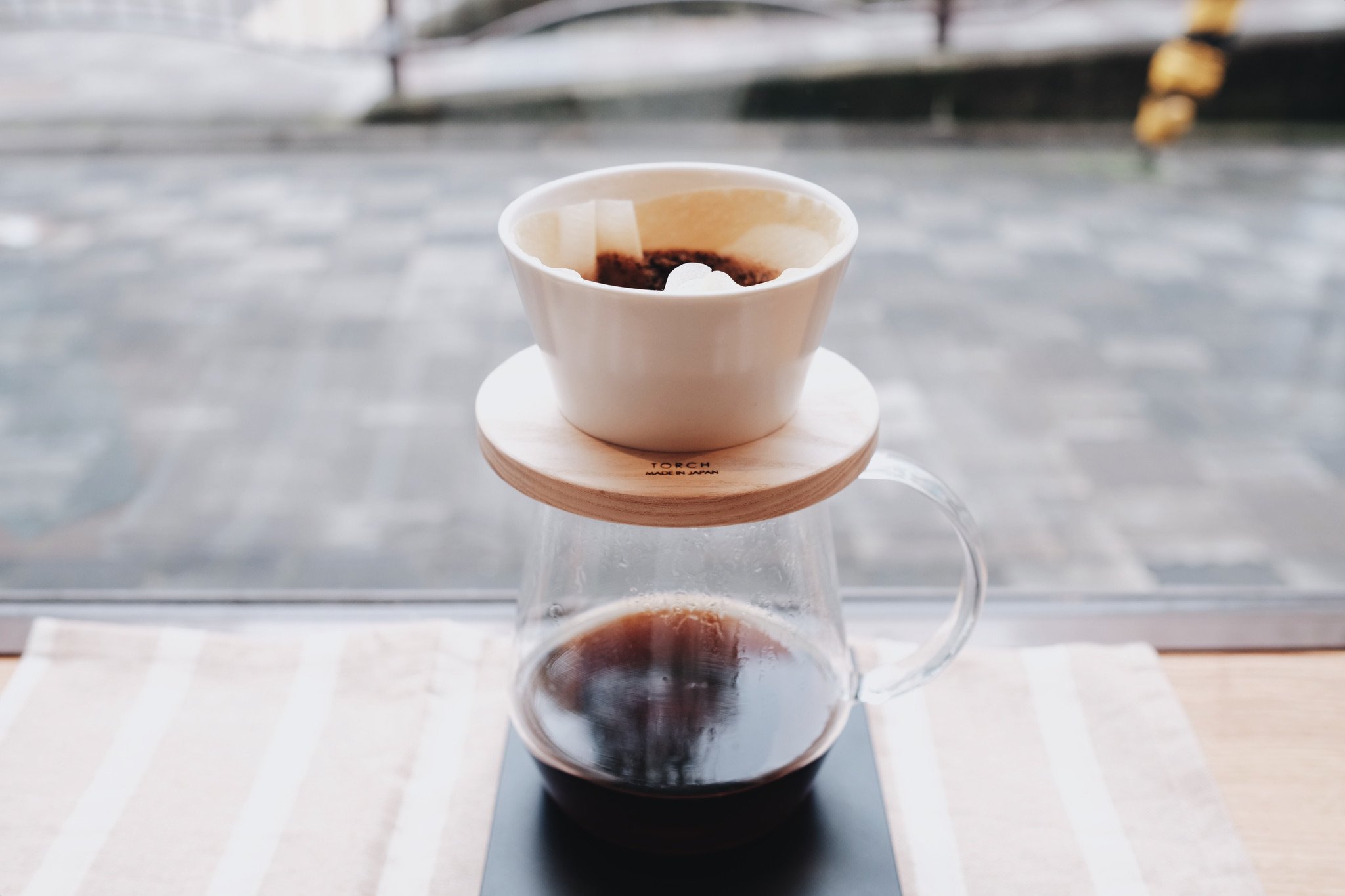
In fact, where does the value of coffee come from? Everyone has a ruler in his heart. All we have to do is to clarify one thing:
How much room for discussion is there between "good" and "bad"?
In the era of boutique coffee, we are constantly taught that coffee is divided into "commercial" and "boutique". The teacher in class may "remind" you that business does not represent bad beans, it is just daily and "not special", but he may also tell you that high-quality beans represent "good", while commercial beans represent "high defects" and "no taste". SCA's boutique and commercial division, probably based on the SCA cup meter score of 80 points as a clean break, and in 350g raw beans, the first-class defect does not allow any points, the second-class defect score less than 5 points.
Defect points mechanism is a little complex, but in short, the relationship with cooked beans is not too big, after all, it is not realistic for consumers to come into direct contact with raw beans, but you can still pay a little attention to ask the store.
In this way, for the average consumer, the flavor score is the most intuitive basis to judge whether it is good or bad. After all, flaws are important because they affect flavor and health, don't they?
However, in terms of flavor scores, is it really not a problem to divide 80 points in the past? Is it true that commercial beans that are "a little lower" than 80 points will go bad after a sip?
Why don't we take a look at how other systems are defined.
Japan is probably the happiest coffee country to play with its own system. The scoring system used by SCA,SCAJ is not SCA's, but COE's, but in any case, apart from the different details of the scoring, in fact, a cup of coffee is divided into several directions to score.
Take COE as an example, the order of importance from high to low is cleanliness, sweetness, acidity, taste, taste, aftertaste, balance, and integrity.
A total of eight, out of eight points plus 36 weighting points, 4 points are average, 6 points are up to the standard, and 8 points are perfect. On the other hand, according to the Japanese SCAJ classification, coffee is divided into:
The total score of Top of top is above 88.
Total Top speciality coffee score 85-88
The total score of speciality coffee is 80 / 85, and there are four items with more than 6 (this grade is called boutique coffee).
The total score of Premium coffee is 76 Murray 80, and each score is more than 5.
The total score of Commercial coffee is 70 / 80, which does not meet the standard of Premium coffee.
The total score of Industrial coffee is below 70
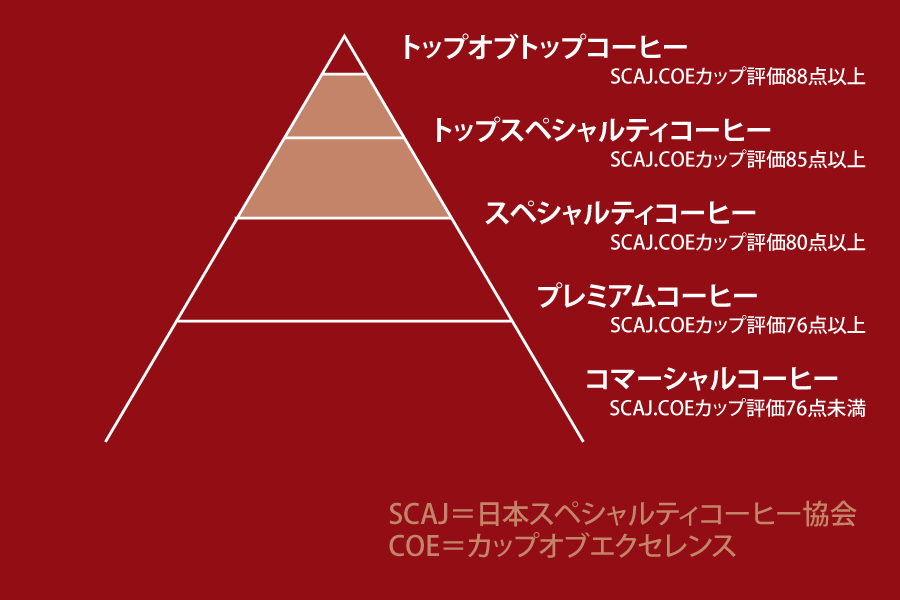
Why should it be divided into so many "and" behind it? Because you only look at the total score, it's easy to ignore the details.
Similarly, if the score is less than 80, it may be that some items have defects; or it may be that all items are better than ordinary, but have no advantages; so those items that are better than ordinary, but have no advantages, should be compared with those with obvious defects?
Without characteristics, of course, it is not a boutique. Because the essence of boutique coffee is "distinctive coffee" (direct translation of speciality coffee), but it does not prevent it from being a "good coffee".
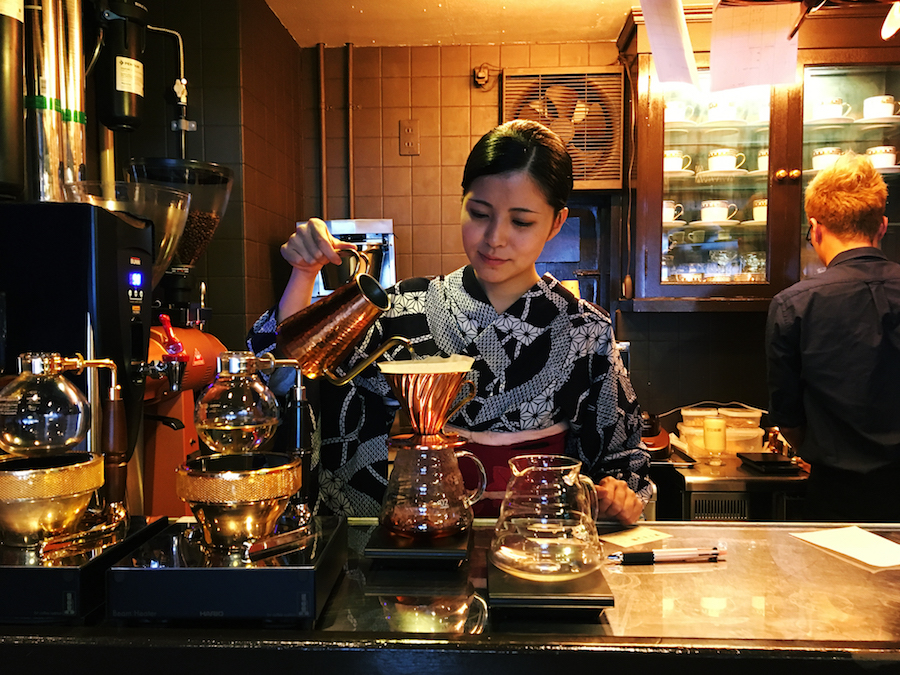
If you take a closer look at the Japanese grading system, in fact, Premium coffee (literal translation: high-quality coffee) is still quite respected as a grade, with good flavor and beautiful price. It is simply the king of CP, while the so-called Commercial coffee (commercial coffee) is marked "daily drinking" with no derogatory meaning, while those above the boutique level are marked "high-end" or "suitable for enjoying slowly and tasting carefully".
For example, in a Japanese store, the menu is marked "Premium Brazil 78.25". The coffee made from a cup of Premium coffee coffee is actually quite delicious. To tell you the truth, most people can't pick out any shortcomings, and the sweetness is very high. The key point is a cup of 280 yen (less than 18 RMB), and half a pound 500 yen does not include tax, so ask you if you want to drink it?
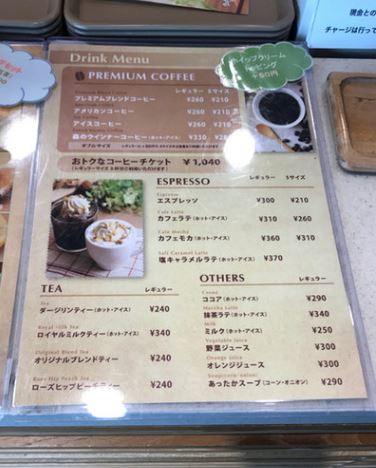
And then again, when a bean is in the hands of different bakers, it can show different value. Use the automatic roaster to automatically run the baking curve, and the baker carefully adjust the baking method, the name of the item is the same, but can the value be the same?
To be honest, it's just a penny for a penny.
When it comes to the market, the key point is whether the taste you drink is in line with the price you sell. As coffee boss Tim Wendelboe used to say:
"again, everything ultimately depends on the flavor, not the standard of the good or the bad."
Why do we say that supermarkets can also buy good beans? There is nothing wrong with selling you 50 or 60 yuan a pound. What's wrong with it? A half pound of illy beans doesn't look cheap, but investment in coffee labs to maintain flavor stability and face the challenge of long-distance transportation costs millions of euros every year, and the amazing thing is that it tastes at that level of value.
As for why it is generally accepted that the beans of Star Baba are poor? Because he is expensive and the flavor is not worthy of the price, he should at least give me a 30% discount.
So in the end, you have to exercise your tongue. What do you like? What is a flaw? What kind of beans can correspond to the value in your mind?
Fine coffee is a kind of enjoyment, and since it is a kind of enjoyment, it might as well be expensive. But if all we need every morning is a good cup of coffee, and we don't have much time to taste it, then as long as we don't put a burden on our bodies, cheap and easy-to-use beans that are not special but good are not a good choice.
In the case of the editor himself, what you want to drink when you get up in the morning is not the 100 kilos / half-pound, delicious Essai beans in the store, but the 60-yuan / half-pound medium-baked Yunnan iron pickup truck that you want to start the day with breakfast.
Why? Because I don't want to drink so tired in the morning. Simple flavor, high sweetness, can be washed casually, as long as it is easy to drink. For this purpose, 50 or 60 yuan and a half pound of beans will be fine, so why spend more than a hundred?
"judge the price by taste and choose by purpose". The editor believes that as long as there are no flaws and no burden on their own body, it is "good" coffee, the rest, open your mind, in fact, we may be able to appreciate more flavor.
Don't rush to cut two pieces of boutique and business is good or bad, exercise your senses in the middle section. Can also help their own purse to save some money, but also harvest taste, how good!
END
Important Notice :
前街咖啡 FrontStreet Coffee has moved to new addredd:
FrontStreet Coffee Address: 315,Donghua East Road,GuangZhou
Tel:020 38364473
- Prev
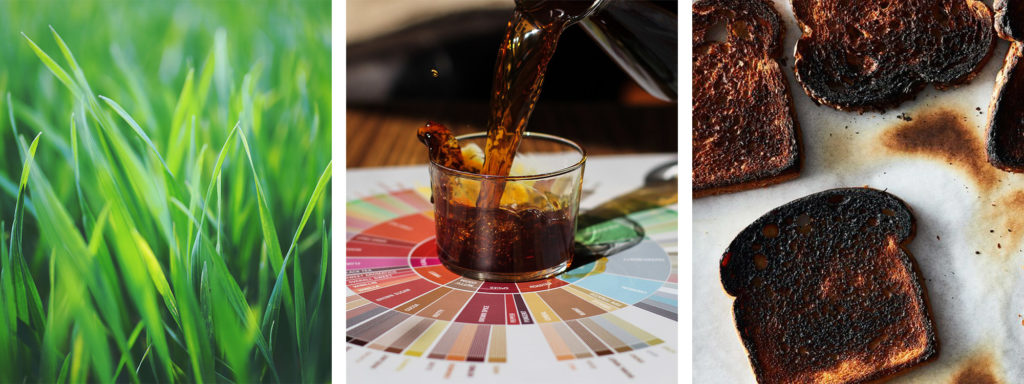
The development stage and color of coffee roasting-what is complete and incomplete development?
Professional coffee knowledge exchange more coffee bean information Please pay attention to the coffee workshop (Wechat official account cafe_style) Coffee roasting there are three floating roasting degree indicators: color, development and baking temperature. Today, let's put aside the temperature with the greatest difference and discuss the development and color of coffee. There are many color criteria about the degree of roasting in coffee roasting.
- Next
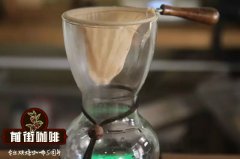
What is the process of roasting coffee? What are the levels of roasting of coffee? Roasting of coffee
Professional coffee knowledge exchange more coffee bean information Please follow the coffee workshop (Wechat official account cafe_style) the baking process is roughly divided into three stages, of which the first two stages can sometimes be merged. The first stage is the beans on the roaster, when the water overflows from the inside to the surface of the beans, and the coffee beans are dried. Observation with the eyes at this stage may not have much effect, but the steam discharged by the roaster
Related
- Beginners will see the "Coffee pull flower" guide!
- What is the difference between ice blog purified milk and ordinary milk coffee?
- Why is the Philippines the largest producer of crops in Liberia?
- For coffee extraction, should the fine powder be retained?
- How does extracted espresso fill pressed powder? How much strength does it take to press the powder?
- How to make jasmine cold extract coffee? Is the jasmine + latte good?
- Will this little toy really make the coffee taste better? How does Lily Drip affect coffee extraction?
- Will the action of slapping the filter cup also affect coffee extraction?
- What's the difference between powder-to-water ratio and powder-to-liquid ratio?
- What is the Ethiopian local species? What does it have to do with Heirloom native species?

